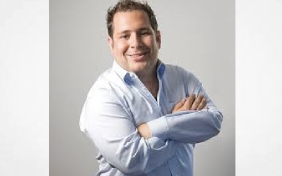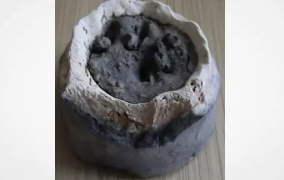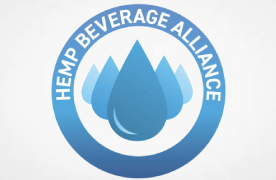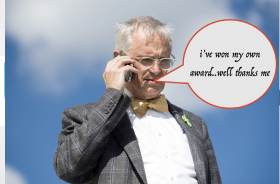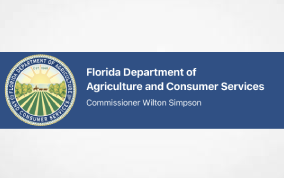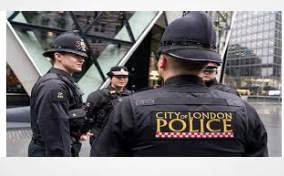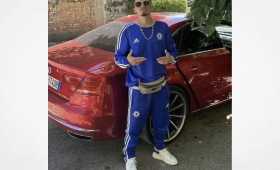Plenty to read in this month’s issue from the Washington State regulators….
Preparing for Significant Changes
Changing Locations?
Please remember that you cannot move your licensed cannabis business without prior approval from the Washington State Liquor and Cannabis Board (WSLCB).
Please remember that you cannot move your licensed cannabis business without prior approval from the Washington State Liquor and Cannabis Board (WSLCB).
As soon as you know you are going to move from your current location, apply for a change of location through Business Licensing Services, here. If you have to move from your current location due to circumstances beyond your control (for example a fire or flood), work with your Enforcement Officer to find out if you are eligible for a Temporary Discontinued Business while you complete your move.
Estates – Getting your Affairs in Order
No one likes to think about it, but a little estate planning will help ease your business’ transition during a difficult time. Although we can’t provide legal advice or help you prepare your will, we encourage you to be prepared. The WSLCB cannot transfer a license to another person until the estate is settled. We will request documents and information to demonstrate who has ownership rights. Most common documents we request include a will, letters of testamentary, and the death certificate. If you have additional questions regarding estates, please email marijuanalicensing@lcb.wa.gov.
No one likes to think about it, but a little estate planning will help ease your business’ transition during a difficult time. Although we can’t provide legal advice or help you prepare your will, we encourage you to be prepared. The WSLCB cannot transfer a license to another person until the estate is settled. We will request documents and information to demonstrate who has ownership rights. Most common documents we request include a will, letters of testamentary, and the death certificate. If you have additional questions regarding estates, please email marijuanalicensing@lcb.wa.gov.

Legal Stuff
The Licensing team cannot give you legal advice, but we do want to help you to know the rules and how to prepare for changes that might happen for your business.
Rules and Rule Changes:
Licensing Process Changes for Updated True Parties of Interest Rules
On October 3, 2020, changes to the marijuana true party of interest (TPI) rules went into effect. With these updates, the Licensing Division will no longer require background vetting of a marijuana licensee’s spouse, if the spouse does not exercise control over the licensed marijuana business. Please use the Change of Governing People application to make changes to the people on your license. If you have questions about making changes to your license, please contact marijuanalicensing@lcb.wa.gov.
On October 3, 2020, changes to the marijuana true party of interest (TPI) rules went into effect. With these updates, the Licensing Division will no longer require background vetting of a marijuana licensee’s spouse, if the spouse does not exercise control over the licensed marijuana business. Please use the Change of Governing People application to make changes to the people on your license. If you have questions about making changes to your license, please contact marijuanalicensing@lcb.wa.gov.
Intellectual Property Contract Reviews
We have been receiving questions about how to submit intellectual property contracts for review. Washington’s cannabis licensees must disclose agreements and contracts related to intellectual property to the WSLCB as required by RCW 69.50.395. WSLCB staff review them for compliance with cannabis laws and regulations. WSLCB staff will not review drafts or provide legal advice/draft contract language for licensees. Please submit completed contracts to licensingcontracts@lcb.wa.gov.
We have been receiving questions about how to submit intellectual property contracts for review. Washington’s cannabis licensees must disclose agreements and contracts related to intellectual property to the WSLCB as required by RCW 69.50.395. WSLCB staff review them for compliance with cannabis laws and regulations. WSLCB staff will not review drafts or provide legal advice/draft contract language for licensees. Please submit completed contracts to licensingcontracts@lcb.wa.gov.
WAC 314-55-087 requires cannabis licensees to keep records of all other contracts (e.g. updated leases, processor-to-processor agreements, employees’ contracts, etc.) for five years. You do not need to send these to the WSLCB you implement them. However, we may ask to see copies of these contracts or agreements at any time.

Are Your Packages and Labels Compliant?
As of January 1, 2021 all products, packaging and labeling must be compliant with WAC 314-55-105. Please submit your revised cannabis infused edible product label applications to labelapproval@lcb.wa.gov for review now, to be sure you meet the approval deadline. Just because products were approved prior to January 1, 2020 does not guarantee they will be approved again. WSLCB licensed retailers who are in possession of non-compliant products on or after January 1, 2021 may return those products to the WSLCB licensed processor consistent with the requirements of WAC 314-55-077, or dispose of the products consistent with WAC 314-55-079(13) and WAC 314-55-097.
Marijuana infused edibles products, packaging and labeling may not contain any statement, depiction, or illustration that is:
-
False or misleading, consistent with guidance provided in 21 C.F.R. Sec. 101.18(a);
-
Promotes over consumption;
-
Represents that the use of marijuana has curative or therapeutic effects;
-
Depicts a person under the age of twenty-one consuming cannabis: or;
-
Especially appealing to persons under twenty-one years of age as defined in WAC 314-55-105.
All submissions must include:
- A completed application.
- Photo of the product, package, label, and retail/bar code label (if applicable). The photo(s) provided shall be of sufficient clarity and resolution to enlarge and illustrate all packaging and labeling requirements.
- Recipe/ingredient approval from Washington State Department of Agriculture (WSDA). Ingredients must be listed on the packaging/labeling verbatim as approved.
- A copy of the Marijuana Infused Edible Processor Endorsement from the Washington State Department of Agriculture.

Medical Cannabis Endorsed Retailers
Since 2016, licensed retailers have had the opportunity to add the medical marijuana endorsement to their license. This endorsement allows a cannabis retailer to sell cannabis for medical use to qualifying patients and designated providers. It also allows a retailer to provide marijuana at no charge, at their discretion, to qualifying patients and designated providers.
Currently there are 179 retailers across the state that have the medical endorsement.
Per WAC 314-55-080, Medical Marijuana Endorsed retailers must adhere to some specific requirements in order to maintain the endorsement. Some of these requirements include:
-
Having a certified medical marijuana consultant on staff in accordance with Department of Health (DOH) rules.
-
Carrying cannabis concentrates and infused products that have been identified as medical grade by DOH and maintaining at all times, a representative assortment of marijuana products necessary to meet the needs of qualified patients and designated providers.
-
Entering qualifying patients and designated providers into a medical cannabis database administered by the DOH.
-
Issuance of medical cannabis patient cards developed by DOH.
-
Ensuring that all employees are trained on medical cannabis including the ability to identify authorizations and recognition cards.
If a medical cannabis endorsed retailer is unable to meet the requirements, set in WAC the endorsement may be suspended or revoked. More information on the Medical Marijuana Consultant Program can be found at doh.wa.gov.

Social Equity: LCB Hosted Virtual Meetings
Over the course of three weeks in late September and early October, LCB virtually hosted a series of Social Equity Community Meetings. The meetings were facilitated by Dr. Caprice Hollins, Psy.D of Cultures Connecting.
The goals for the community meetings were to:
-
Improve communication between the LCB and communities of color;
-
Introduce LCB leadership, explain roles, and to establish how the LCB’s work might intersect with people of color who apply for licenses in the future or acquire existing licenses; and
-
Inform attendees about the work of the Social Equity Task Force, established through legislation.
Attendance at each of the three meetings ranged between 40 and 70 participants. While the majority of participants represented the African American community, there were other communities of color represented too.
Director Rick Garza said, “There was clear anger that exists from people who believe they were intentionally left out of the regulated cannabis marketplace.”
Board Member Ollie Garrett added, “I don’t have to tell you that our nation has awakened to the cultural injustice that many in our community are voicing these past several months.”
During the meetings, participants spoke and shared their experiences and concerns with agency leaders. The WSLCB provided updates on the upcoming work of the Task Force. WSLCB staff also provided clarification of the roles of the agency, the Social Equity Task Force, and the Legislature and Governor when it comes to the Social Equity Task Force.
The Social Equity Task Force was created under a new state law (E2SHB 2870), which created pathways for those disproportionately harmed by the war on drugs to potentially gain a license for retailing cannabis. In the future, the Social Equity Task Force will inform the LCB of the criteria for issuing additional cannabis retail licenses to persons disproportionately harmed by the war on drugs.
To learn more about the Task Force, visit the Social Equity in Cannabis web page at the Governor’s Interagency Council on Health Disparities.

Agency Re-Organization: Policy and External Affairs
Chief Justin Nordhorn is transitioning from his role as Director of the Enforcement and Education Division to a new position as Policy and External Affairs Director. In that capacity, Justin will be overseeing and working closely with Policy and Rules Manager Kathy Hoffman and her team, as well as the yet to be formed outreach team consisting of existing LCB staff. More work is ahead as we continue to develop an outreach strategy to directly engage stakeholders and licensees to further education, understanding of and compliance with our rules and policies.
As the Policy and External Affairs Director, Justin will bring his decade of executive leadership and 22 years in law enforcement experience to oversee agency rules and stakeholder outreach programs. His balance of public safety experience and big picture thinking will be an invaluable asset to the agency and stakeholders going forward.
Justin’s transition to the new position will not be immediate. He will continue to lead the Enforcement and Education division as the agency recruits and hires a new chief.

COVID-19 and Cannabis
When the coronavirus pandemic first began, cannabis licensees were listed as essential, due to stores being the only place to legally acquire cannabis products. Producers and processers were listed in the essential category as well, because they are the supply chain for cannabis retailers.
Some special allowances were made, with children under the age of 16 being able to physically be on producer farms due to childcare issues, curbside service being offered to customers, and relaxed timelines for delivery related to delays caused by wildfires. Children under the age of 16 have not been permitted to work at cannabis locations during the pandemic, and guidance has been offered about locations of where children should be.
All cannabis licensees revised their operational procedures to include mask wearing, social distancing, hand sanitizing and proper handling of products to protect themselves and their customers from spreading the virus.
Licensees should be aware that relaxed rules will expire when individual counties enter Phase 4 of the Governor’s Safe Start Plan, though. The LCB’s Policy and Rules Unit is also analyzing the current allowances and developing recommendations for amendments, where they are appropriate.

Contact Us
Recently, we learned that some of you are sending licensing questions to an email address that is not affiliated with the WSLCB. We want to answer your questions. If you have a licensing question, please contact us at marijuanalicensing@lcb.wa.gov.

LCB Seeking Feedback on Communications Needs
The Topics and Trends Newsletter always ends with a survey asking licensees what information they seek for future issues. That feedback has been categorized into a dozen themes captured in this one-page survey.
Please take a moment to identify the top five items that you would like to see addressed first. Not every topic is conducive to every mode of communication, so we’ll be matching topics to the method that works best. One medium the Communications team is planning to expand is the use of short video vignettes for staff and stakeholders on key topics. Please let us know your ideas.
